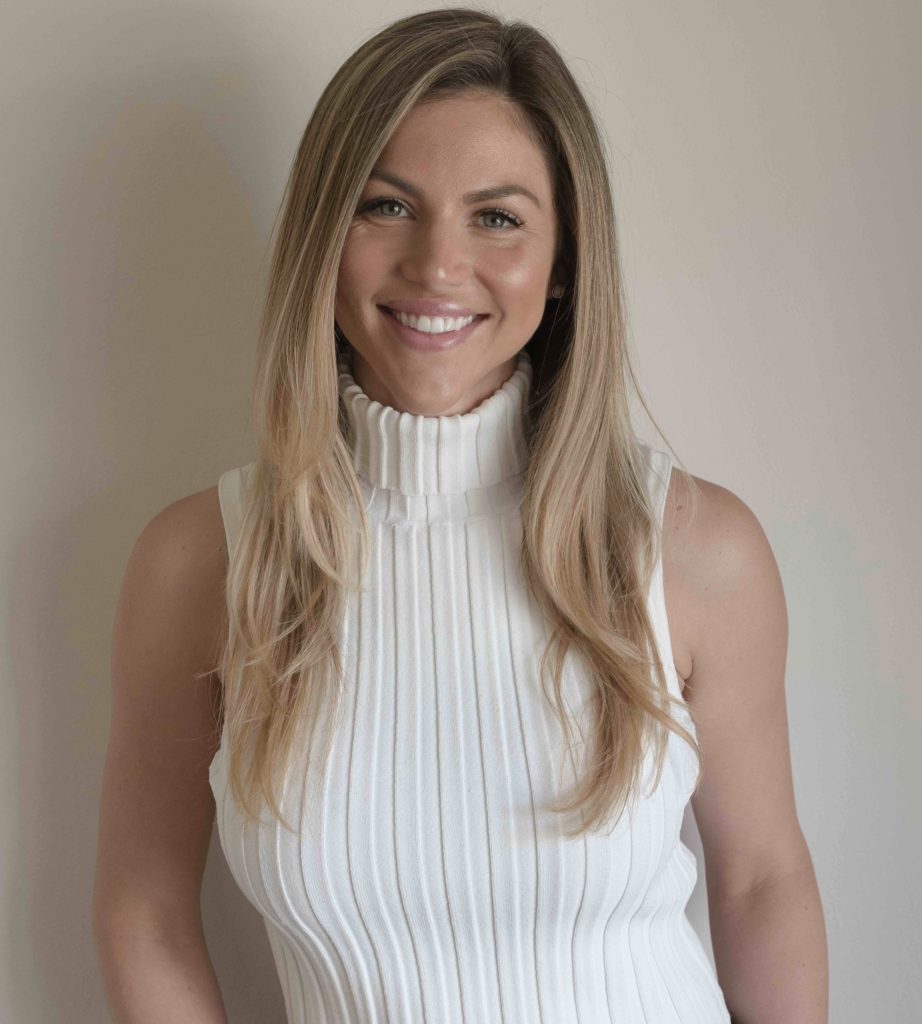
As a behavior analyst, my appeal to clients often stems from my data driven approach. Numbers, graphs, and specific associations between independent/dependent variables are the cornerstone of my client programs. It makes sense to me that this approach feels legitimate, safe and valid to people looking to pay for health coaching.
It is also no surprise to me that I tend to attract a majority of rational, logical, data driven clients for this same reason. “If there is no data to support it, it doesn’t exist,” is a common motto I utter. “You’re not gonna try any of that touchy feely stuff… are you?” They reply.
I fell in love with behavior analysis for this same reason. When I needed to modify my behavior after decades of partying took its toll, it felt ineffective to lay on the couch in some Freudian type model talking about when I was a baby (it also felt too vulnerable).
At that time in my life, I certainly didn’t want to waste time talking about anything that I couldn’t see, track, repeat, and document. Back then, I was smart enough to know I needed to learn psychology to help myself, but guarded enough to not invite any spiritual, softer or more vulnerable type of healing.
The behavior science I studied and used to modify my own behavior was safe, effective, and didn’t hit any nerves that ran too deep. Hard science also met me where I was at, but it did not dive as deeply into my own holistic healing as I later surrendered to and benefited from.
Related Post: GUILT AND SHAME HAVE NO PLACE IN AN OPTIMAL HEALTH PLAN!
Now, I am a couple of years deep into running my own private practice as a behavior analyst and nutritionist. I see clients from around the world, and we modify their behavior with respect to their relationship to food, movement, substance use, stress management, medical conditions, and more.
As much as people want the data, I have been in practice long enough to tell you that there is a clear winner in what was the most impactful part of our work together.
Guess what? It isn’t the data…
What my past clients bring up in our touchpoints/check ins over a year after they ‘graduate’ from my services are the analogies that we’ve discussed during sessions. Here are the top three that most people remember:
Analogy #1: AC Unit
Our health behaviors are analogous to an air conditioning unit. An AC unit is set at a particular sweet spot. If the temperature in the room goes too many degrees above or below that set sweet spot, the unit calibrates itself back to the sweet spot that you locked it in at.
Our health and fitness operates the same way. We all have an internal gauge set at a particular temperature by default. This temperature reflects what is acceptable to us based upon our upbringing, those around us, and our environment. Our internal temperature reflects what level of energy we expect upon awakening, our weight, how many nights per week we drink/eat fast food/smoke cigarettes, how fast we can run a mile, etc. It dictates what is an acceptable ‘sweet spot’ that we calibrate our unit to.
If we find ourselves too far outside the ‘sweet spot’ of our health and fitness, we calibrate back to stay within a few standard deviations from that comfort zone. I work with my clients to reset their temperature, and get to a new norm. I facilitate this through encouraging them to reach out to and establish a close relationship with a fit friend, challenge them to a week of healthy living to know what increased stamina and energy can feel like, and other exercises to “get a new normal.”
Analogy #2: Ounces and Tons
Jim Rohn said one of my favorite quotes: “We must all suffer from one of two pains: the pain of discipline or the pain of regret. The difference is discipline weighs ounces while regret weighs tons.”
We all know that incongruent living is exhausting and fraught with disappointment that can corrode our confidence. When the identities that we hold about ourselves are challenged by our very behavior, that incongruence is fed. For example, we think of ourselves as a healthy athlete, but we drink alcohol every single night.
What actions of discipline weigh ounces that you must practice daily to be in congruence with your healthy identity? What are the things that weigh tons that you struggle with regretting doing or not doing?
Related Post: RAISE YOUR HEALTHY LIVING STANDARDS
Analogy #3: Healthy Behavior Bank
There is an inner bank we all have where deposits and withdrawals are made constantly. This is the bank of our health identity, and the behaviors we select and follow through with are the transactions.
Every time we reach for the water, moderate our portions, go for the walk, and refuse the junk food/wine/nicotine/<<fill in the blank>>… we make a deposit into our ideal health identity bank. Every time we skip a lifting session, go off the rails with our diet, get too full, or slip up in general… we withdraw from the bank.
Over time, these choices become the identity we exist in. Favorable choices lead to profit instead of debt, and bring us closer to our best selves.
Let’s look at the ledger of our best self identities and sway our days and moment to profit instead of debt.
There are times that we take loans from our bank. These can be for intentional and noble purposes like starting a business, buying a home or leasing a car. Alternately, these loans can be for mindless items for which we do not have the means or plan to repay… and as anyone whose had a credit card knows: they add up quick!
When we work long, American hours during the week, we are taking a loan from our health bank. Our bank requires some repayment on the weekends with respite and relaxation. When we borrow against an already taxed account: being over worked sitting at a desk, fueling our systems with fast food, and stress managing through unhealthy coping- we dive dangerously in the red.
What are some of the times you’ve taken a loan from your account? Maybe during grad school, lots of drinking during the holiday season, during a period you were care giving or worried about a close family member? Are there patterns to what you deem worthy of a loan? Is it always to help others? Always to party? Always to achieve more? Do you pay yourself back by allowing R&R?
As you have likely noticed, none of these analogies have anything to do with hard data that behavior analysis promises. Similar to my experience (and dismay), my own self-work didn’t stop with the quantitative either. Whole healing, and sustained shifts that last over time will require a cold dip into chilly discomfort.
It demands us to hold up a mirror to look at what factors are influencing our comfort zone with our health and fitness (AC unit). Sustained change asks that we look at the actions we require the slight discomfort of discipline for in order to avoid heavy consequences (Ounces and Tons). Additionally, it asks us to be aware of our minute to minute and day to day actions that build a trend over time toward holistic health or disease and stress. Also, we must ask ourselves what we are willing to sacrifice our health and fitness goals for (Healthy Behavior Bank).
These practices of reflection and mindfulness have had a great qualitative response from my clients. It is hard to factor these changes in a quantitative way, but it means something that people hang on to these ways of thinking over time, and tell me about them after some time as passed.
The safety of working in the logical, left brained space will get you some of the way, but not all the way. Health coaches coming from any background have to be comfortable building rapport and safety with our clients so that we can touch the deep stuff. Holding up these mirrors is a way to facilitate quantitative outcomes of the dependent variables with a softer touch that is remembered by clients in years to come.

Ashley Damaj is a Cornell trained Nutritionist, USC trained masters-level therapist, and post-masters Board Certified Behavior Analyst. An avid athlete, yogi, organic farmer, and chef; Ashley lives with her husband and daughter in Newport Beach, California.
She is the founder of Mothership Wellness, Inc., an integrative private practice. The backbone of her business is working directly with clients on ten pillars of wellness that are assessed and improved through actionable, short term, goal oriented individualized programs.
As a former pack a day smoker, drug/alcohol abuser, and overweight individual, Ashley’s mission is to bring behavior modification science and empirical solutions to individuals and families who want to make the move to a more healthy lifestyle be in alignment with the fullest expression of themselves.
She has worked in both corporate and clinical settings over the course of her career. Ashley has held Director level positions at a Fortune 5 companies, to clinical positions in a variety of therapeutic settings
(juvenile hall, domestic violence centers, in-home therapy, facility settings, etc.). Ashley has with diverse clientele of all ages using CBT, ACT and Behavior Analytic modalities for over a decade.


